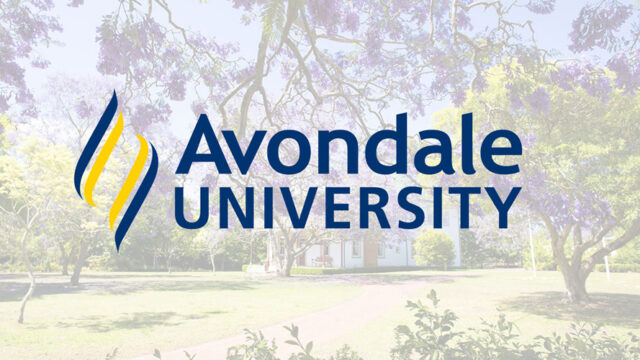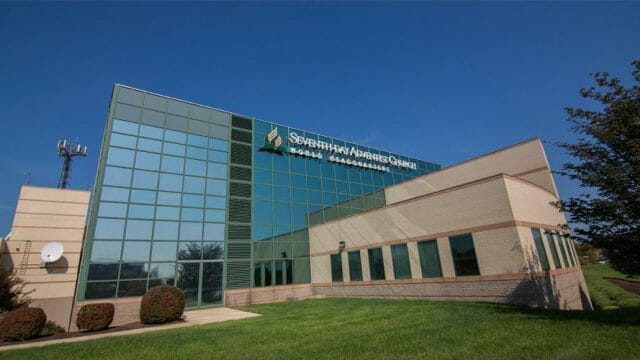From birth to life’s final breaths, services are connecting families beyond hospital walls.
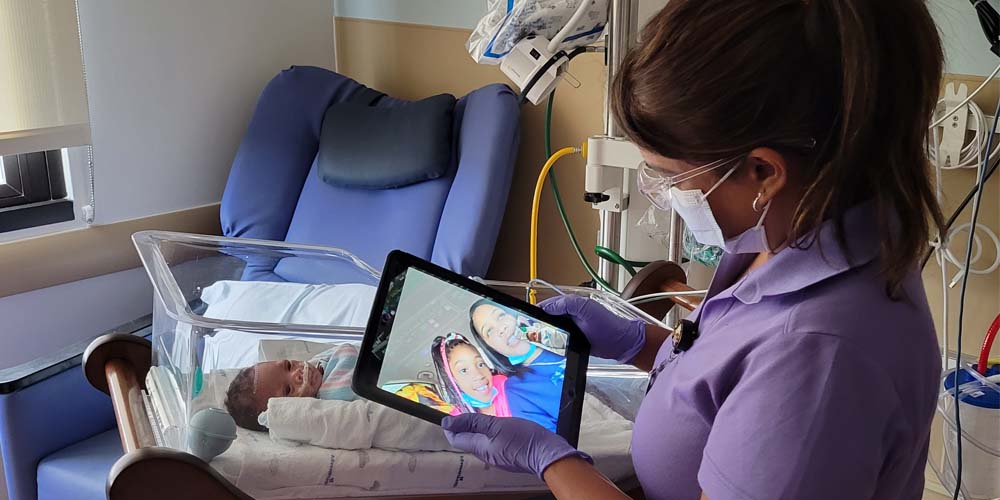
The COVID-19 pandemic has forced health care to adapt in many ways, and at the AdventHealth health system in the United States, that includes innovations in mental and spiritual care in addition to physical care. Providing emotional and spiritual support has been a focal point as families cope with fear, anxiety, loss, and grief.
One of these innovations has been the reimagining of family visitations. The initiative, led by the AdventHealth consumer experience team, started with the shipment of hundreds of tablets to facilities across the health system, each programmed with a telehealth app specifically adapted for virtual visitations.
Local teams comprising chaplains, experience leaders, and other redeployed team members donned personal protective equipment. They went into patient rooms many others could not enter to help patients feel connected to those they love and missed most.
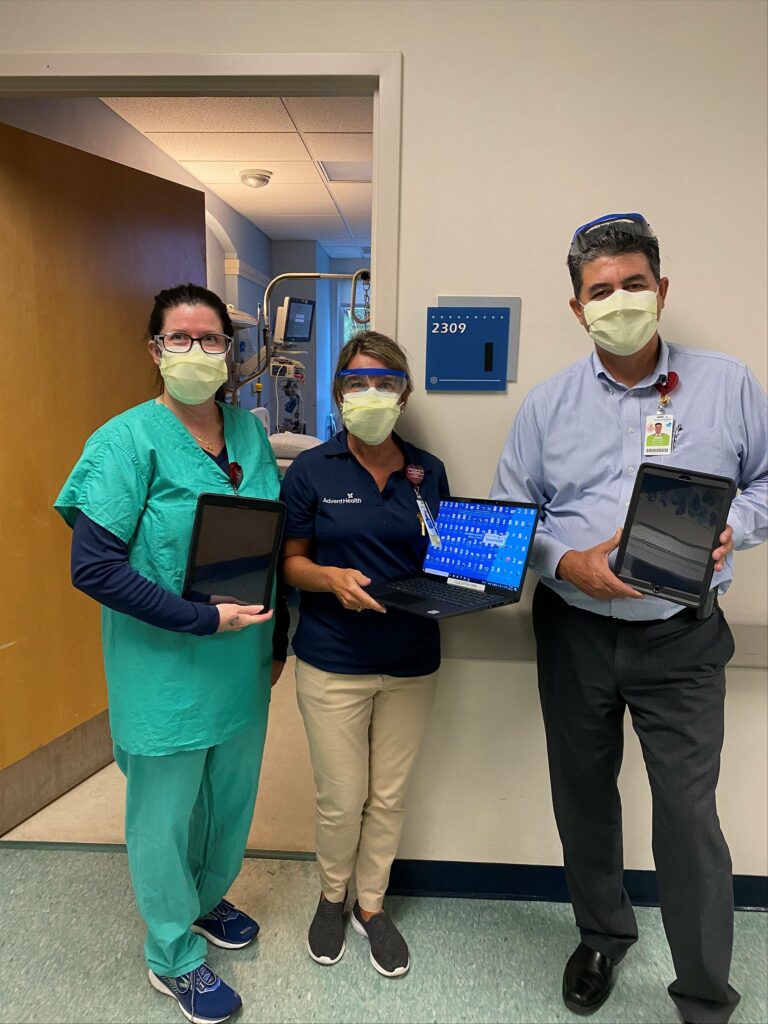
Today, pandemic protocols continue to evolve, but AdventHealth leaders still see the benefits of virtual visitation services.
“Our experience leaders and our partners in pastoral care, child life, and other areas have really stepped up during this challenging time to extend our mission in innovative ways,” Pam Guler, vice president and chief experience officer for AdventHealth, said. “The value of virtual visitations is undeniable, and our organization is having key conversations on how to keep this offering available beyond the COVID-19 pandemic.”
A Mom Meets Her Newborn for the First Time
Amrita Budhu is a virtual connections specialist who connects families with babies in the neonatal intensive care unit (NICU). At the peak of the Delta variant surge, she was facilitating roughly 15 virtual calls a day.
Amrita said she loves her job because she gets to build a relationship with the babies’ families, sometimes doing up to 30 calls with them before discharge. One of the moms she’s worked with is Kimya Williams.
Williams got COVID-19 while she was pregnant with her son. Her condition deteriorated, she developed pneumonia, and she had to deliver her baby while on a ventilator. When she woke up, the first time she saw her son, who was in the NICU, was through a virtual visit.
“I couldn’t believe that I had him,” she said. “I had been on the machine, and I couldn’t believe it until they showed me. It was shocking, and I had to adjust. Now I just can’t get enough of him.”
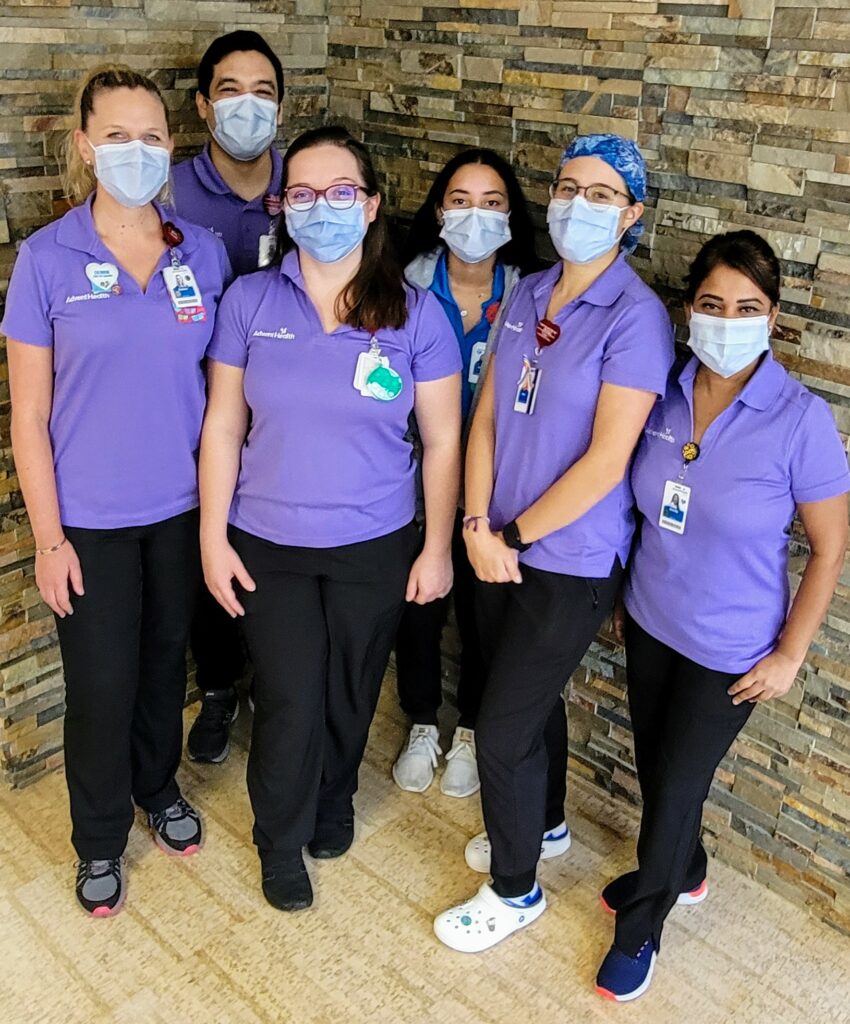
Williams and her family live about an hour-and-a-half drive from the hospital. Even if she could’ve had visitors, the drive to and from the facility would have been too much for her other kids. The virtual visits proved handy when she was still in the hospital, connecting with her family at home and her baby in the NICU, and now after her discharge when she’s at home taking care of her family but still calling to see her newborn.
“The best decision my family could have made was to get me to that hospital,” Williams said. “I love the virtual visits from AdventHealth, and all morning I wait for their call.”
Williams recently visited the Ginsburg Tower at AdventHealth Orlando in Florida, where she had been a patient, to show appreciation to the nurse who took care of her and the environmental services team member who inspired her and encouraged her faith that she would pull through. Budhu, Williams’ virtual connections specialist, was the one who showed her around.
“It was definitely happy tears,” Budhu said.
A church family anoints their beloved brother and friend
Wally and Mary Ellen Fox, longtime residents of the state of Georgia, retired after more than 30 years working at Georgia-Cumberland Academy to live six months out of the year in their Georgia home and the other six months in Florida. Beloved by their community, they never lost touch with their Georgia church family and friends.
In August, the couple came down with COVID-19. Mary Ellen got better, but Wally was taken to the emergency department (ED) at AdventHealth Palm Coast, admitted, and eventually ventilated.
By the time Jennifer Mellow, ED patient experience ambassador, met him, Wally was intubated in the intensive care unit (ICU). Mary Ellen, who was in the Palm Coast area, and their daughter and grandchildren back in Georgia, were closely involved in his care from the start. The family made a poster of his life so the hospital staff would get to know him, and they joined virtual calls facilitated by Mellow on a daily basis.
Friends and family in Florida and Georgia rallied in prayer for Wally. The pastor of his home church in Georgia contacted Eddie Goncalves, AdventHealth Palm Coast senior chaplain, with the idea of hosting a virtual anointing ceremony. With the technology already in place, Goncalves enlisted the help of Mellow and Wendi Coheley, patient experience manager.
The team set up three devices for the ceremony. The tablets were held up in such a way that everyone on the call could see and hear each other and feel as if they were in the same room.
“I know you can do amazing things with technology, but I wasn’t sure how the anointing could happen,” Mary Ellen said, recalling the event. “It was very meaningful — it was a comfort, having so many people praying for him.”
The ceremony included sessions of prayers for forgiveness and healing and the application of anointing oil on Wally’s forehead.
“For Christians, anointings have such a comforting effect,” Goncalves said. “It’s an assurance that this person has served God and is now in God’s hands. It’s about surrendering and asking for intervention if it is His will.”
At the end of the ceremony, Mellow stayed in the room with a tablet to offer the family a private closing moment with Wally.
“It felt like they were hugging even though they were in different states,” she said. “You could tell they were at peace because they did what he would’ve wanted.”
Fox passed away a week after the anointing. His family arrived in time to be physically with him, thankful for the technology that connected them up until that moment.
“Every day, there is someone who needs people to connect with them,” Coheley said. “Our job now is not to let this technology go away just because our COVID numbers decline. I think of families who live out of state, young grandchildren who can’t come to the hospital — there are a lot of ways to use this to support our mission and support the patient.”


